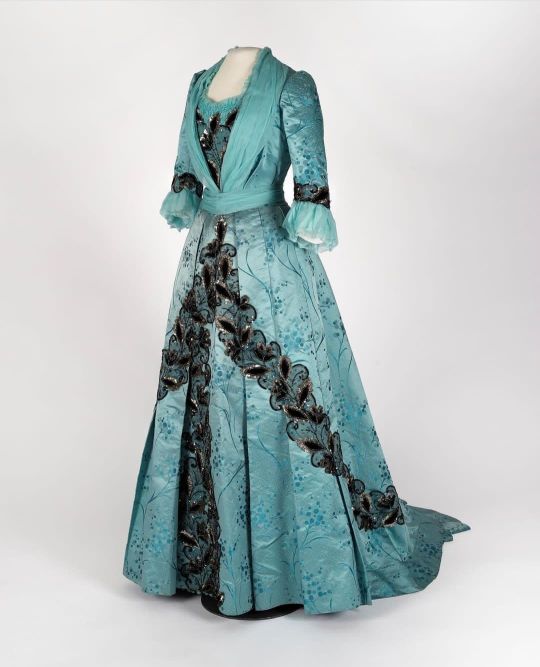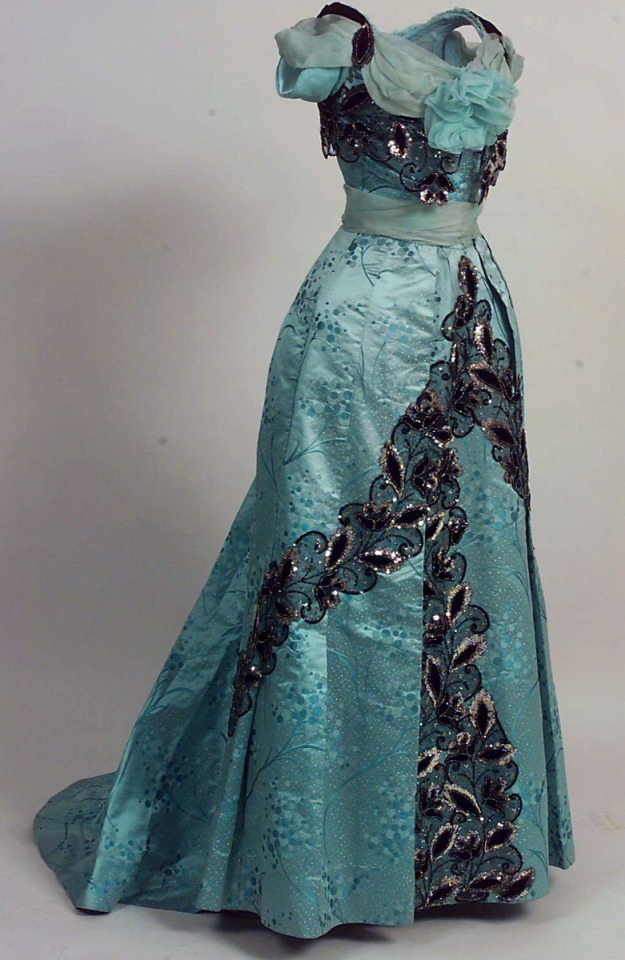Text



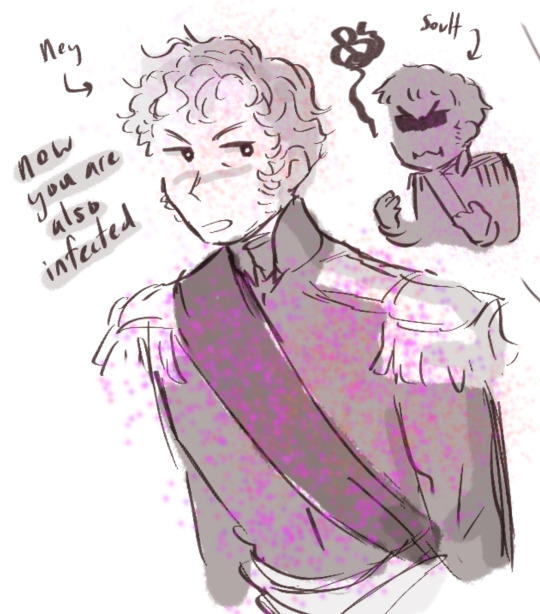
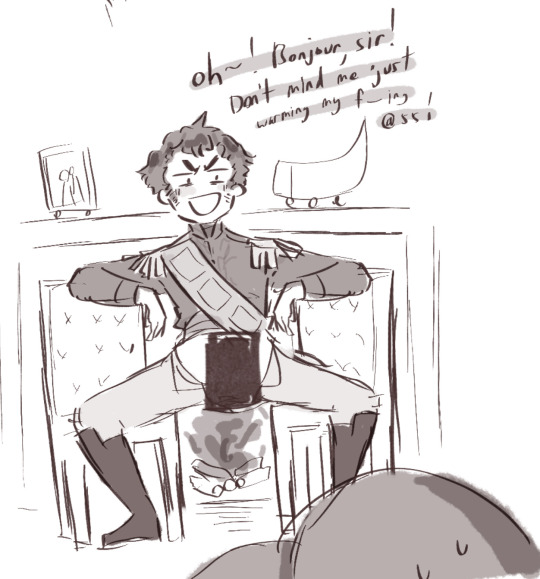




I have a huge dump of napoleonic doodles inspired by actual and RP events (can you tell which?). Some of these are really old (before hiatus) but I’ll just put them here since I don’t think I’ll ever be able to properly color them all😢
Also bonus Soult’s brain frying:

44 notes
·
View notes
Photo
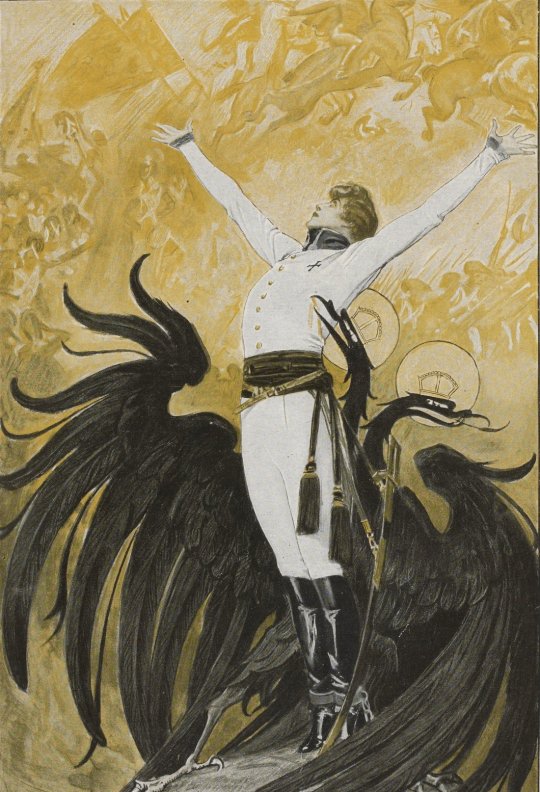
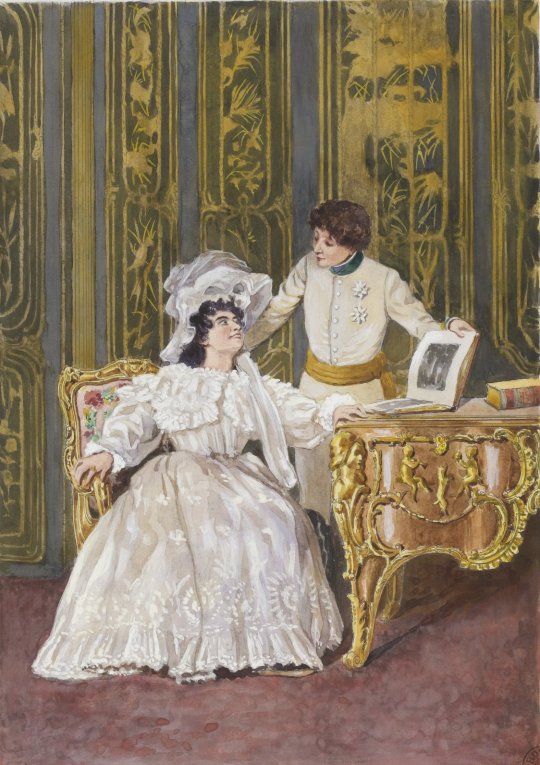

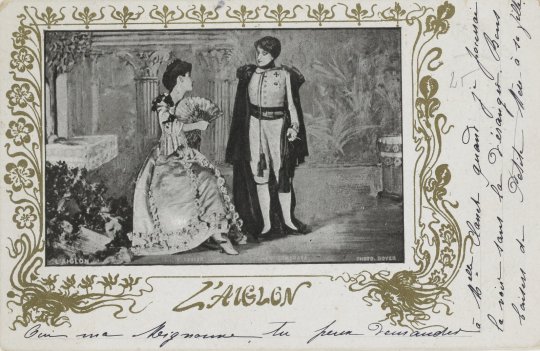
Sarah Bernhardt as Napoleon II in Rostand’s play L'Aiglon. There is a lot of graphic documents (photos, postcards, illustrations) about Bernhardt and L'Aiglon here.
1K notes
·
View notes
Text

1815: The Return of Napoleon by Paul Britten Austin.
I'm reading it and like it a lot. It's a page-turner. From amazon:
"This unique and atmospheric volume presents the dramatic story of Napoleon's escape from Elba and his march on Paris in the words of eyewitnesses and participants. Drawing on hundreds of firsthand accounts by Napoleon's supporters and opponents, Paul Britten Austin recreates the drama of those tumultuous days of the spring of 1815: Napoleon's dramatic landing at Antibes in the south of France, the first heady days of his arrival after almost a year of exile, his almost miraculous march across France, his arrival in Paris, and the coup which led to the fall of the Bourbons.
"Paul Britten Austin's technique, so brilliantly presented in his earlier 1812 trilogy on Napoleon’s invasion of Russia, brings historical events to life and gives a dramatic insight into the hopes and fears of the French nation in that spring of 1815."
12 notes
·
View notes
Photo

Jacques-Louis David, Bonaparte Crossing the Grand Saint-Bernard Pass, 20 May 1800, 1802. Detail.
655 notes
·
View notes
Text



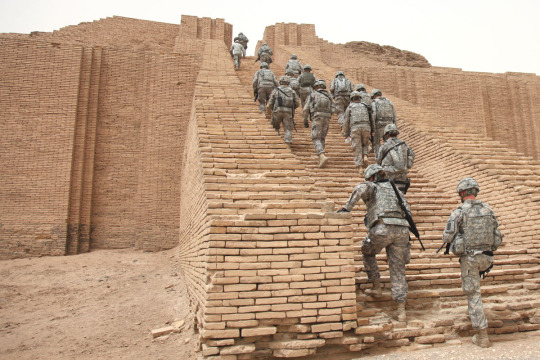

Coalition forces in the ancient Mesopotamian Ziggurat complex, Iraq.
92 notes
·
View notes
Text
The meeting of Joseph Fouché and Thaddeus Kościuszko
After the capture of Berlin, Napoleon continued to carry on his plans on further invasion and gathering the poles, his potential allies, to fight. A step to achieve it was gaining the good graces and help of a well respected polish general and american war hero, Thaddeus Kosciuszko, whom the Emperor wanted to see in person no matter what it takes to bring him around. He addressed Joseph Fouché:
Send Kosciuszko here and tell him to take a stagecoach to meet with me, but secretly and not under his own name… Give him as much money as he needs, and let the Poles who are with him to come too. I want this to all be carried out as discreetly as possible.
Arriving at his destination, Berville, Fouché met with Kosciuszko and explained that Napoleon would like to see him and told him to pack his belongings as he was to accompany the French Emperor on a campaign. Kosciuszko, hating Napoleon with passion and having previously expressed his disgust and disapproval for the “gravedigger of the republic” refused to cooperate with him, and explained once again his unwillingness unless Napoleon agrees on certain condition to found a country for his people on the annexed territories. Their conversation was then written down as following:
“What kind of guarantees and security do you demand, General? Do you expect to be treated by the Emperor like a state within a state?” Fouché replied with a question.
"I am not a king, nor an authority of any country. I do not want anything”
Kościuszko then began to list conditions on which he would agree to join forces with the Emperor, to Fouché’s surprise. Disliking Napoleon, but willing to fulfill his mission, Fouché counters:
“The emperor will never agree to any conditions. One needs to be blindly devoted and obedient to his will. He decides himself and based only on his wisdom and what circumstances suggest. His genius and power need no advice, exceptions or guarantees. I even have an order for you to sign this proclamation… And if you decide not to go along, then we will force you and declare it in your name.”
“If so, then I will publicly state that I am not free. I will protest against any proclamation that does not come from me.”
After the exchange switched to Fouché informing the general that his statements are powerless and could be censored anytime, and the later replying about the moral collapse of France under the Empire, the conversation continues:
“I must confess, General, that your answer or rather your questions, astonish me. His Majesty may command you to accompany him anywhere he may intend to make use of your services, and I think it to be neither in your own nor your countrymen’s interest to refuse the desire of my august sovereign.”
"I am perfectly aware of my position; I am residing in His Majesty’s dominions, and am therefore at present his subject. His Majesty can dispose of me as he pleases, he can drag me with him, but I doubt whether by doing so either my nation or can render him much service. But under reciprocal favours, both my nation and I are ready to aid him. May Providence forbid that your powerful master should once repent having disdained our good services.”
Fouché was not accustomed to anyone turning down the Emperor, but obviously hating Napoleon swell and understanding, most likely even respecting this approach, responded;
“I only wish General, that you may never repent your refusal.”
The two men continued to cross paths as Fouché was continuing his attempts to complete the assigned mission. He successfully forged a letter and manipulated the public, misleading it about Kosciuszko’s thoughts on cooperation with Napoleon. The quarrel began, and the two exchanged letters, but with Fouché’s hatred for Napoleon he did not wish Kosciuszko, his open opponent, any bad fate. Later, during the reign of Louis XVIII, Fouché will offer his help to the general and secretly supply the needed documents to him, including a passport under a fake name for his safety.
36 notes
·
View notes
Text

"Prostitution was illegal in most places, but the fines levied on prostitutes provided a steady income for towns (as they still do). Many approved of brothels to curb male rampages. Between 1436 and 1486, for example, gangs of young men, mostly the sons or servants of residents, preyed on Dijon women. They broke into the houses of spinsters, widows, or wives whose husbands were away to rape them, sometimes dragging the women through the streets to an empty house where they kept them for days, repeatedly raping them. City officials solved this problem by setting up municipal brothels. They filled them with the women who had been assaulted in the gang rape."
-p.43 of 'From Eve to Dawn, A History of Women in the World, Volume II: the Masculine Mystique' (French, Marilyn)
600 notes
·
View notes
Photo
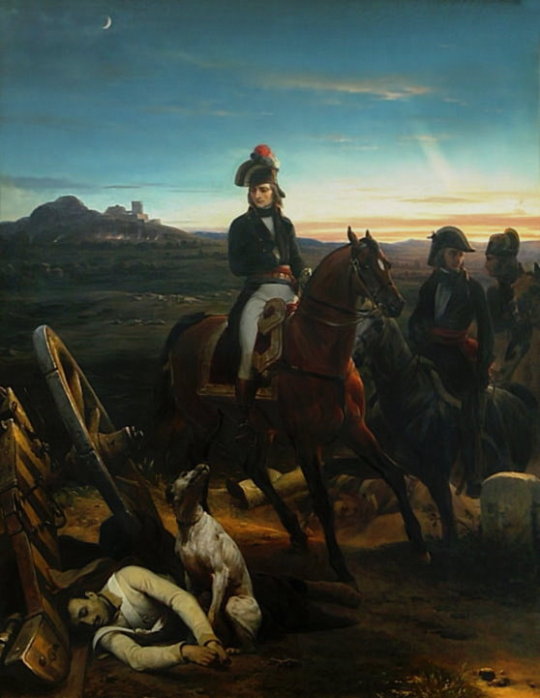
Bonaparte near Bassano by Horace Vernet,1848
“This soldier, I realized, must have had friends at home and in his regiment, yet he lay there deserted by all except his dog. I looked on, unmoved, at battles which decided the future of nations. Tearless, I had given orders which brought death to thousands. Yet here I was stirred, profoundly stirred, stirred to tears. And by what? By the grief of one dog.”
-Napoleon Bonaparte
226 notes
·
View notes
Text
129 notes
·
View notes
Text
the way gay ppl online talk abt classical um. faggotry is interesting. every time i see a 'ancient greece/rome was a queer paradise' im like girl lets separate fantasy and fact. we can all imagine two beefy bearded warrior type guys blowing each other. we can even jerk off to that. but that was NOT what was going on back then
6K notes
·
View notes
Text

Us on a Thursday night seeing what day is coming tomorrow.
Friday is here! Make your weekend as amazing as you.
- - - - - - - - - - - -
"BB- Mama Bear" by GlacierNPS is marked with Public Domain Mark 1.0.
279 notes
·
View notes
Text
i am a loser in ways you can’t even wrap your head around
#sometimes i thinn about downloading dating apps just so i can hunt down a man who looks like napoleon bonaparte#and then slowly try to make him act like napoleon
7K notes
·
View notes
Text



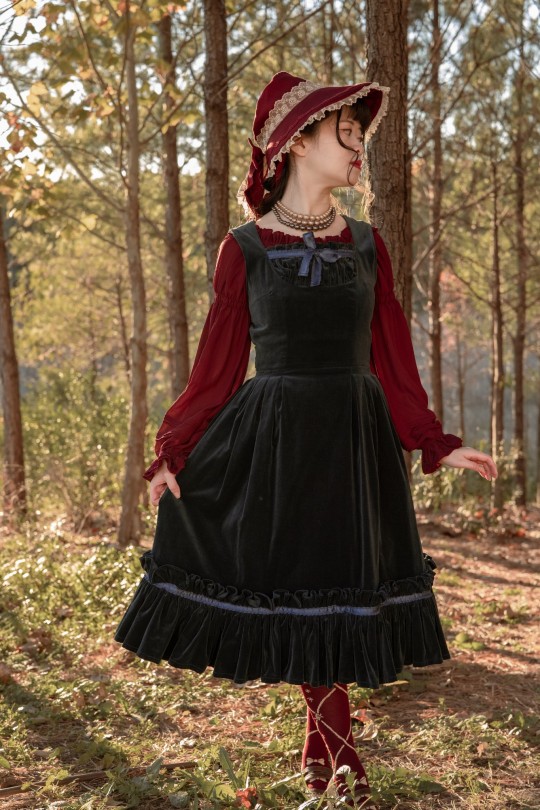
Teal and burgundy is a powerful combo, like a full set of complementary color armor.
JSK: Juliette et Justine
Blouse: Krad lanrete
Socks: innocent world
Bonnet: Mary Magdalene
Necklace: vintage
Shoes: Cobb hill
48 notes
·
View notes
Text
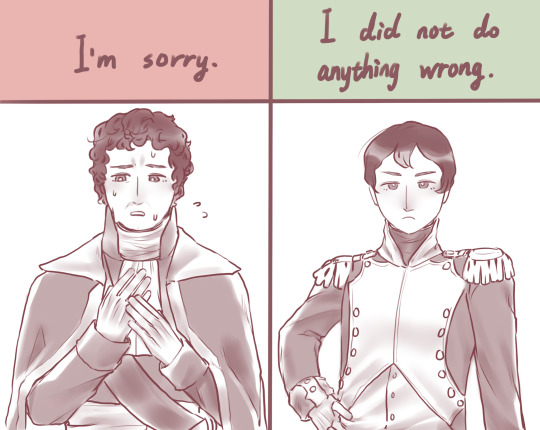
Stop✋️ using🤳 anti-self❌️🙋 language 🗣
79 notes
·
View notes
Text
Napoleon and Nicolas Appert: The invention of canned food
“Although he [Napoleon] continued so far as possible the Revolutionary practice of having armies live off the land, he also did his best to develop an efficient commissariat. A famous part of his supply system was canned food, particularly meat, for the army. Nicholas Appert had started the food-canning industry in 1804, building a factory that employed fifty people. His method prescribed putting the food in glass jars, which were next carefully stoppered, and then cooked in boiling water for lengths of time varying with the type of food. The navy first used the canned food, with great success even on extended cruises. In 1810 the Minister of the Interior awarded Appert 12,000 francs on condition he make his process public.”
— Robert B. Holtman, The Napoleonic Revolution
The inventor of canning, Appert, deposited samples of his invention to the imperial government in 1809, specifically to the Society for the Encouragement of National Industry [Société d'Encouragement pour l'Industrie Nationale].
He published his findings in 1810, titled: Le livre de tous les ménages ou l'art de conserver pendant plusieurs années toutes les substances animales et végétales [English tr: The Art of Preserving All Kinds of Animal and Vegetable Substances For Several Years]. It was “a work published by the order of the French Minister of the Interior, on the report of the Board of Arts and Manufactures”.
For his discovery, the government paid him 12,000 francs and gave him free lodgings and a workshop in the Hospice des Quinze-Vingts. Every prefecture in the French Empire was supplied with a copy of his book, and the prefects were assigned the responsibility of disseminating the information widely. Two more editions were created under the empire, and another in 1831.
His factories were ransacked and destroyed during the invasions of France in 1814 and again in 1815. He was able to rebuild and won several gold medals from the Society for the Encouragement of National Industry and eventually became a member of the Society.
Appert is quoted as saying “I sacrificed everything for humanity, all my life”.
Additional Sources:
English translation of Appert’s 1810 publication
Nicolas Appert inventeur et humaniste, Jean-Paul Barbier, 1994 (Fondation Napoléon)
Collection A. Carême: Le conservateur 1842 (archive.org)
Defining Culinary Authority: The Transformation of Cooking in France, 1650-1830 by Jennifer J. Davis
#I was telling my coworker about this the other day and he said#‘I thought you were reading something’
19 notes
·
View notes


